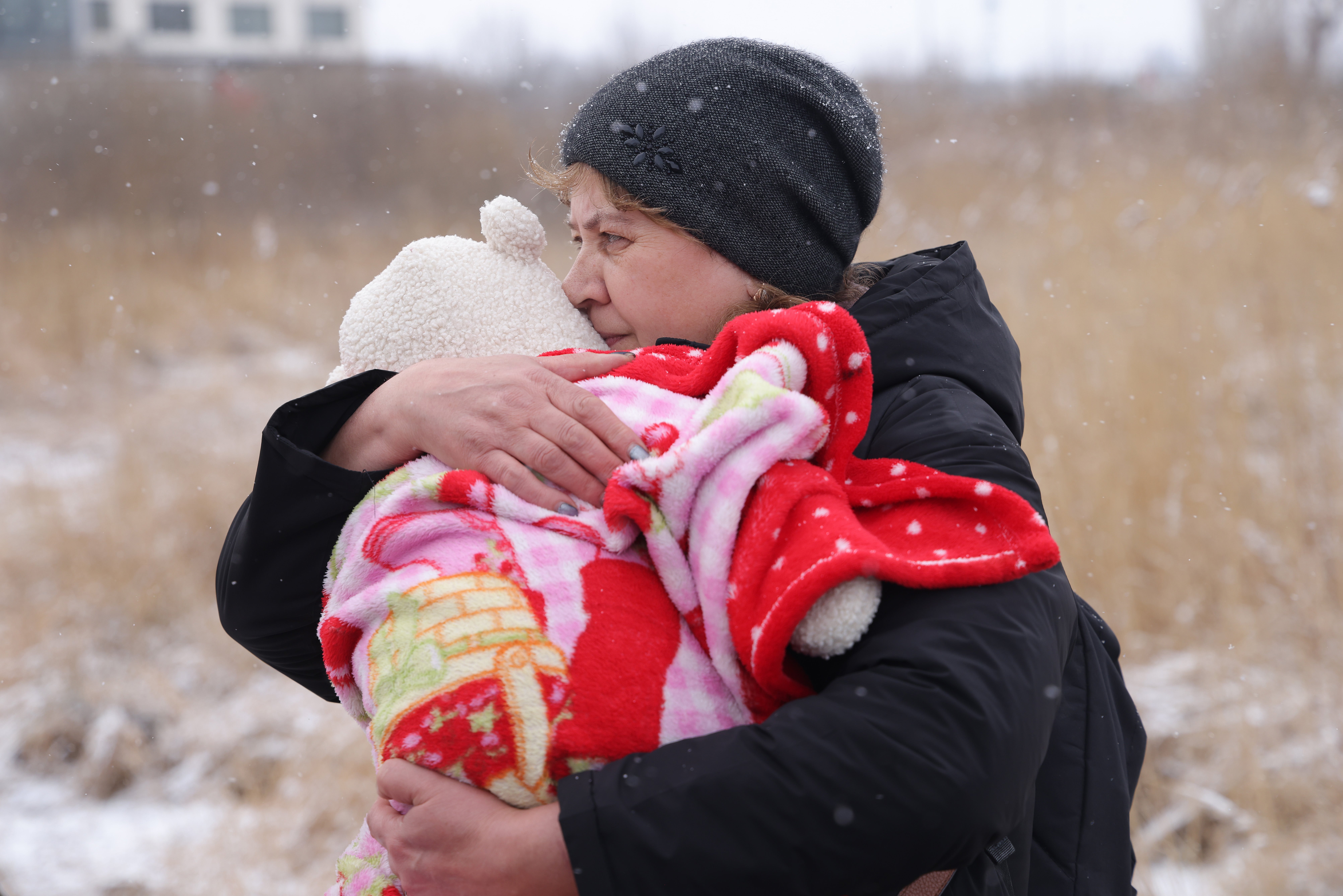Russian officials ‘privately denouncing clusterf***’ invasion
‘They’re carefully enunciating the word clusterf***,” a source tells Russian journalist Farida Rustamova
Your support helps us to tell the story
From reproductive rights to climate change to Big Tech, The Independent is on the ground when the story is developing. Whether it's investigating the financials of Elon Musk's pro-Trump PAC or producing our latest documentary, 'The A Word', which shines a light on the American women fighting for reproductive rights, we know how important it is to parse out the facts from the messaging.
At such a critical moment in US history, we need reporters on the ground. Your donation allows us to keep sending journalists to speak to both sides of the story.
The Independent is trusted by Americans across the entire political spectrum. And unlike many other quality news outlets, we choose not to lock Americans out of our reporting and analysis with paywalls. We believe quality journalism should be available to everyone, paid for by those who can afford it.
Your support makes all the difference.Several Kremlin officials are believed to be “privately denouncing” president Vladimir Putin’s “clusterf***” invasion, as reports continue to emerge of Russian forces encountering fierce resistance from Ukrainians on the ground.
Several of Russia’s government officials and parliamentarians are getting increasingly worried by Mr Putin’s handling of the war, according to a report by Russian journalist Farida Rustamova.
In an English translation of the report, posted by journalist Ilya Lozovsky and published on Rustamova’s Substack on Sunday, the attitude of high-ranking officials towards the war was described as “ambiguous”.
“Many of them are discouraged, frightened and are making apocalyptic forecasts,” the former BBC journalist wrote. “They’re carefully enunciating the word clusterf***,” a source said, describing officials’ reaction to the war.
“No one is rejoicing. Many understand that this is a mistake, but in the course of doing their duty they come up with explanations in order to somehow come to terms with it,” she reported, citing sources close to the Kremlin.

Highlighting the disdain among high-ranking officials over the Russian president’s decision to start the war, the journalist quoted a source as saying: “If Russia considers itself an empire, why not become attractive to its neighbours by developing the country instead of by forcing their loyalty??
“Let’s build good roads, quality health care and education, and eventually come up with the kind of technology that would allow us to be the first to colonise Mars. That would be quite empire-like.”
Meanwhile, Ukrainian president Volodymyr Zelensky has urged Europe and Nato to prevent a mass “humanitarian catastrophe” by declaring a no-fly zone around the country.
In a televised address on Wednesday, Mr Zelensky said the level of threat in the country was at a maximum nearly two weeks into Russia’s invasion, but Ukrainians have shown they would never give in.
“Russia uses missiles, aircraft and helicopters against us, against civilians, against our cities, against our infrastructure. It is the humanitarian duty of the world to respond,” he said.

The war has forced nearly one million children to flee from Ukraine, representing about half of the two million people compelled to cross the border, reported the Associated Press.
In addition to children, most of the other refugees are women, as Ukraine has prohibited men from the age of 18 to 60 from leaving the country.
The Independent has a proud history of campaigning for the rights of the most vulnerable, and we first ran our Refugees Welcome campaign during the war in Syria in 2015. Now, as we renew our campaign and launch this petition in the wake of the unfolding Ukrainian crisis, we are calling on the government to go further and faster to ensure help is delivered.
To find out more about our Refugees Welcome campaign, click here. To sign the petition click here. If you would like to donate then please click here for our GoFundMe page.
Join our commenting forum
Join thought-provoking conversations, follow other Independent readers and see their replies
0Comments